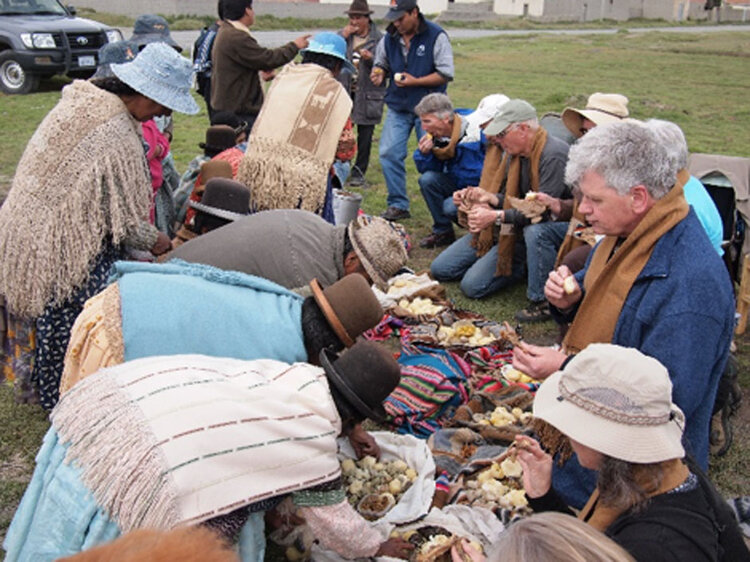Twenty-first Sunday in Ordinary Time
Maryknoll Affiliate Rick Treuting
August 21, 2022
Isaiah 66:18-21, Psalm 117:1, 2, Hebrew 12:5-7, 11-13, Luke 13:22-30
Maryknoll Affiliate Rick Treuting reflects on Jesus’ teaching to strive to build the kingdom with acts of mercy and love.
Do you also feel immediately affirmed as a missionary disciple when reading the line from today’s reading from Isaiah, “I come to gather nations of every language, they shall come and see my glory?” What a wonderful passage! It seems that the intrinsic dignity of all people is celebrated here.
However, when I read the Gospel, I lost some of my delight and exuberance. There never seems to be a lack of challenge to living up to our call to Christian discipleship. Today we hear, “Strive to enter through the narrow gate, for many, I tell you, will attempt to enter but will not be strong enough.” Why would Jesus emphasize what seems to be exclusion and negative consequences by teaching how hard it might be to be a part of the Kingdom? Okay, so we might be a little “over-sized,” but did he need to make the gate so narrow?
And why would Jesus use the idea of ‘locking us out’ and pretend that we aren’t known to the Master? Perhaps the answer to these questions lies in our recognition of our casual and sometimes indifferent attitude toward missionary discipleship. “We ate and drank in your company and you taught in our streets,” the people say, but the Master responds that they don’t truly know him. Too often our minimum effort wants to be seen as our maximum. It seems that Jesus is asking us to honestly reflect upon the match or mismatch between our potential and our production – between what we know to be the higher way and the unobtrusive or easy way.
As a public-school educator for almost 40 years, it was often easy to take the unobtrusive path that avoided the narrow gate. This was quite true with respect to how we related to children with learning disabilities, cognitive delays, physical differences, and what we called “behavior disorders.” As a young teacher, I was “eating and drinking” in the company of people who saw little responsibility to such children. To be honest, we teachers typically hoped that we would not find any such youngsters on our class rolls. We were not strong enough to move through the narrow gate of inclusion that welcomed all students and their gifts.
Somewhere along the road, God began to move us to recognize the worth of the less-able students through their words and thoughts. Their academic and social successes slowly but surely became a measurement of effective education. The paradigm shifted from seeing these children as expendable to seeing them as exceptional. In retrospect, our work for these children has become a sign and a light to the nation.
I read once that the meaning of mercy is suggested in the expression “just give ‘em a break.” Giving someone a break hints at ignoring justifications or requirements and instead focuses on giftedness. Maybe Jesus’ response in today’s Gospel to the question of “Will only a few people be saved?” was just another way the Lord is inviting us to join the ranks of the merciful.
In my teaching years, it took giving the students with learning challenges a few “extra breaks,” graces if you will, to strengthen us enough to embrace the narrow gate and decide that it was the one Jesus wants all of us to enter. The same can be said for our work with immigrants and others that a large part of our society wants to avoid. The narrow gate widens every time we “give them a break!”
Rick Treuting is a Maryknoll Affiliate from Louisiana.
Photo: Maryknoll Affiliates in Bolivia. Photo courtesy of the Maryknoll Affiliates.

